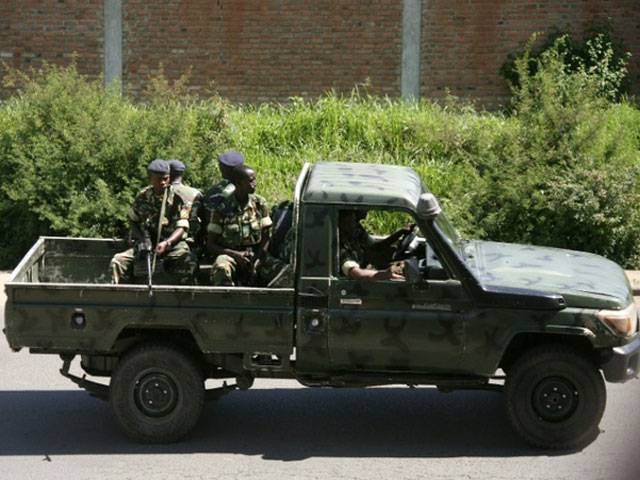ADDIS ABABA - A proposed peacekeeping force for troubled Burundi was put on hold Sunday, as African leaders pulled back from sending troops in the face of vehement opposition from the government in Bujumbura.
For now, the AU is proposing more talks.
The United Nations has warned that Burundi risks a repeat of a 1993-2006 civil war, with hundreds of people killed since April 2015, when President Pierre Nkurunziza announced he would stand for a controversial third term in office.
At least 230,000 people have fled to neighbouring countries. Burundi has consistently opposed the idea of the AU's planned 5,000-strong peacekeeping mission, saying the deployment of troops without its express permission would be tantamount to an "invasion force".
The AU charter's Article 4(h) gives the pan-African bloc the right to intervene in a fellow nation state "in respect of grave circumstances, namely: war crimes, genocide and crimes against humanity".
But a top African Union diplomat, Ibrahima Fall, said Sunday that sending troops without Burundi's approval was "unimaginable," with the bloc deciding to send envoys to hold talks with the government.
"There is no will neither to occupy nor to attack," AU Peace and Security Council chief Smail Chergui added, saying that "if Burundi accepts it, it will be a force for disarmament".
Clashes between government loyalists and the opposition have become increasingly violent. "We want dialogue with the government, and the summit decided to dispatch a high level delegation," Chergui told reporters, without giving more details.
Chad's President Idriss Deby, speaking after he took over the post of African Union chairman on Saturday, warned colleagues against inaction.
"Our organisation acts as it has for the past 20 or 30 years: we meet often, we talk too much, we always write a lot, but we don't do enough, and sometimes not all," Deby said.
Analysts say other African nations are wary of setting a precedent of deploying troops against the government's wishes.
AU leaders have spent two days debating the crisis in Burundi at the 54-member bloc's summit in Ethiopia, with closed door talks expected to wrap up later on Sunday.
"It was never the intention of the African Union to deploy a mission to Burundi without the consent of Burundian authorities," Ibrahima Fall, AU Special Representative for the Great Lakes Region, told French radio RFI. "This is unimaginable," the Senegalese diplomat added.
Nkurunziza's quest to remain in power sparked weeks of street protests that were brutally suppressed, and a failed coup.
The political rhetoric has also become more ethnically-charged, sparking fears the ruling party may be trying to drive a wedge between majority Hutus and minority Tutsis.
UN Secretary-General Ban Ki-moon, speaking on Saturday as the AU summit opened, made clear that troops were needed to stem the violence.
"Leaders who stand by while civilians are slaughtered in their name must be held responsible," Ban said, insisting that the Burundi crisis required the "most serious and urgent commitment".
He said the UN backed the AU's proposal "to deploy human rights observers and to establish a prevention and protection mission".
Friday, April 19, 2024
AU force for Burundi on hold amid govt refusal

9:58 PM | April 18, 2024
King Charles's cancer ‘eating him alive,' monarch unable to perform duties: Insider
1:02 AM | April 19, 2024
Mehwish Hayat says she would like to work with Aamir Khan
9:59 PM | April 18, 2024
What caused record-breaking rainfall in UAE?
9:58 PM | April 18, 2024
Donald Trump discusses Ukraine, Middle East, NATO with Polish President Duda
9:57 PM | April 18, 2024
'That'll be awesome,' Rohit Sharma on idea of Pakistan vs India Test series
9:17 PM | April 18, 2024
Hepatitis Challenge
April 18, 2024
IMF Predictions
April 18, 2024
Wheat War
April 18, 2024
Rail Revival
April 17, 2024
Addressing Climate Change
April 17, 2024
Justice denied
April 18, 2024
AI dilemmas unveiled
April 18, 2024
Tax tangle
April 18, 2024
Workforce inequality
April 17, 2024
New partnerships
April 17, 2024
ePaper - Nawaiwaqt
Advertisement
Nawaiwaqt Group | Copyright © 2024





